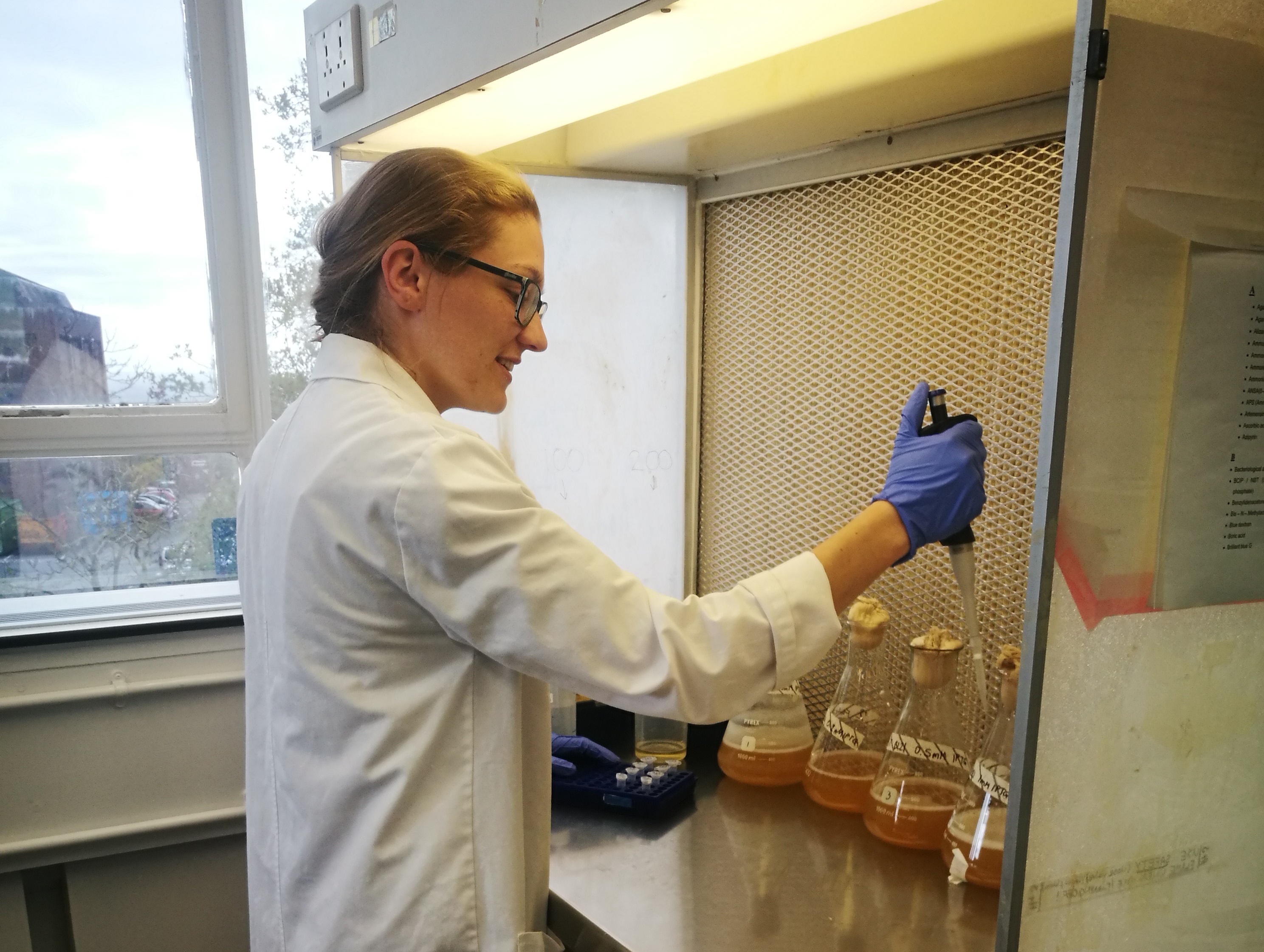Cutting edge research helps farmers’ Fluke fight

Clare Collett at the laboratories in IBERS, Aberystwyth University
A quest to help save future UK farmers what could be millions of pounds by limiting resistance to a key drug for sheep and cattle wellbeing is being led by the latest post graduate candidate to be supported by Hybu Cig Cymru-Meat Promotion Wales (HCC).
Aberystwyth researcher Clare Collett, 24, is in her final year of a PhD at the Institute of Biological, Environmental & Rural Sciences (IBERS) at Aberystwyth University.
Clare is one of a number of postgraduate researchers to be supported by the Knowledge Exchange Skills Scholarships (KESS) programme, which brings universities and industries together to promote research which can boost key parts of the Welsh economy.
Clare is looking into the isolation of molecular markers that identify resistance to a vital drug that controls and removes liver fluke in cattle and sheep, a debilitating disease that diminishes value and returns for the farmer.
“The drug we are trying to protect is Triclabendazole, an old drug and very good at what it does. It has been used thoroughly as the go-to remedy whenever the symptoms of Fluke appear in animals and its prevalence has produced resistance,” explained Clare.
Clare studied a Masters in medical parasitology at the London School of Hygiene and Tropical Medicine following her IBERS Biology degree. She then applied for the HCC PhD support and was successful. “The work I was doing at first was a continuation of looking at the molecular makeup of the fluke.
“I’m hoping that, following my work, we will know enough to be able to introduce a novel test, a form of trial and error, to confirm or eliminate fluke and therefore any unnecessary treatment with Triclabendazole.
“We hope to be able to find a penside test for farmers – which could be saliva, a stool or an ear/nose prick blood test – that can illuminate the farmer about the condition on the farm.”
Clare said the bursary support was a huge help to her continuing her studies. “It’s a great experience; you gather a wealth of experience that offers a fantastic opportunity to set up and continue in a career in this industry.”
Post PhD Clare is keen for further research projects. “I know lab based work works for me and I’m keen to continue in the same field – parasitology,” she said.
Supervisor Dr Russ Morphew said, “The work completed by Clare during this KESS funded project is everything you hope for in such an academic-industry collaboration. Her research is paving the way to support the future control of liver fluke across the globe and importantly will have a direct, tangible benefit to the future farmers of Wales.”
HCC Industry Development Officer Gwawr Parry emphasised how Clare Collett’s research would have tangible benefits for farmers.
“Liver fluke infection can mean lambs having a 30% reduction in daily live weight gain,” she said. “As well as promoting the best possible animal welfare, treating fluke effectively has a direct impact on the bottom line of farm businesses in the form of finishing animals more quickly and reducing expenditure on additional feed.”
Gwawr added, “HCC is very proud to be part of the KESS scheme, enabling postgraduates to work with leading academics on projects which will be of benefit to Wales’s £1.6 billion agriculture sector.”



